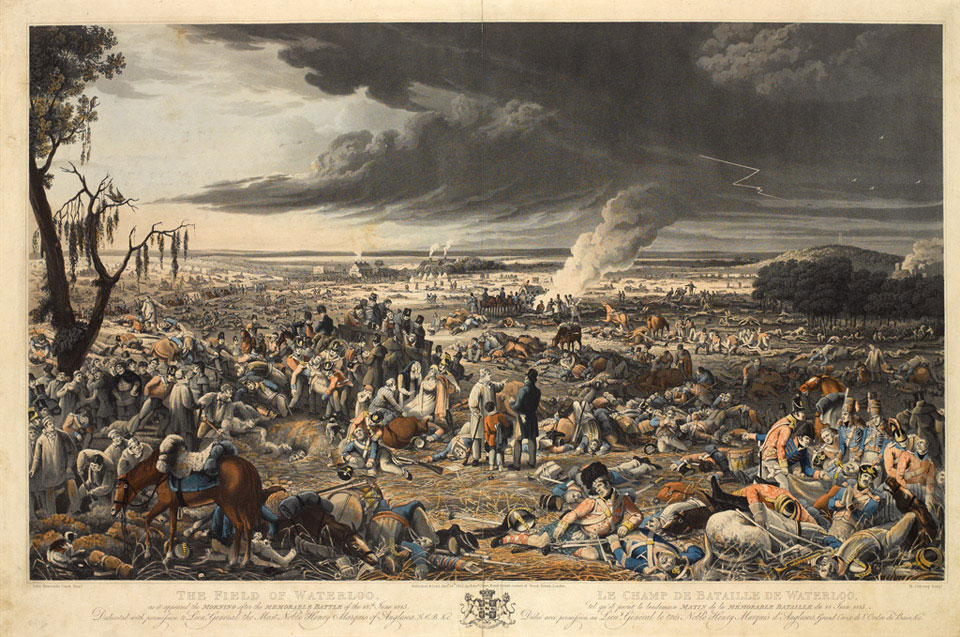
Online Collection
« Prev - 1 of 1 results - Next »
'The Field of Waterloo, as it appeared the morning after the memorable battle of the 18th June 1815'
Coloured aquatint by M Dubourg after J Heaviside Clark. Published by Edward Orme, London, 18 January 1817.
Waterloo brought down the final curtain on a war that had raged for 23 years and marked the end of France's attempt to dominate Europe. It was Napoleon's last gamble for victory. Against him was an allied coalition led by the Duke of Wellington, whom the Emperor publicly disparaged as a commander.
Napoleon waited for the ground to dry before attacking, but the initial assaults of Reille's and D'Erlon's corps were repulsed. Repeated charges by French cavalry then failed to break the defensive squares of allied infantry. Only the capture of the farmhouse of La Haye Sainte threatened Wellington's position. By late afternoon the army of Prussian Marshal Blucher started arriving to reinforce Wellington.
Desperately, Bonaparte made a last throw to win the day. Across a field littered with dead and dying men, he launched the Imperial Guard. France's elite stormed towards the British but were overwhelmed by shattering musket fire. A general retreat began - the French Army was routed. Three days later the Emperor abdicated.
NAM Accession Number
NAM. 1965-11-89-1
Copyright/Ownership
National Army Museum, Out of Copyright
Location
National Army Museum, Myth and Reality: Military Art in the Age of Queen Victoria
Object URL
https://collection.nam.ac.uk/detail.php?acc=1965-11-89-1

